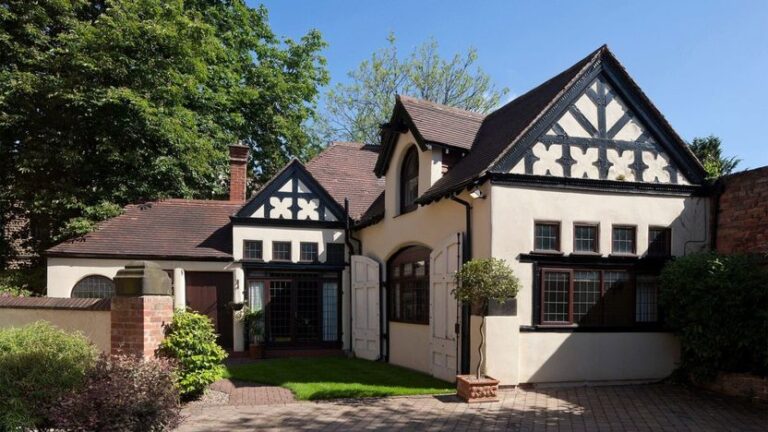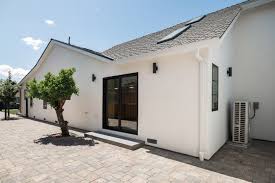
Thinking about buying a home but wondering if it’s a good move in the middle of a recession? You’re not alone. Many people are on the fence, uncertain whether it’s a smart decision or if it’s better to wait. There’s no one-size-fits-all answer, but understanding the pros and cons of buying in a tough economic climate can help you make a more informed decision.
Let’s take a look at how recessions affect the housing market and whether now is the right time for you to dive into homeownership.
How Does a Recession Affect the Housing Market?
First things first, let’s talk about what happens to the housing market during a recession. A recession usually means a slowdown in the economy, and that can lead to a drop in consumer confidence. People spend less, businesses struggle, and unemployment rises. For the housing market, this often results in a couple of things: lower home prices and fewer buyers in the market.
If you’re someone who’s been keeping an eye on real estate trends, you’ve probably noticed a dip in home prices during a recession. But that doesn’t mean it’s smooth sailing for everyone—there are challenges too. Let’s break down what you can expect if you decide to buy a home during a recession.
The Pros of Buying a Home in a Recession
1. Potential for Lower Home Prices
One of the big advantages of buying a home in a recession is the potential for lower prices. With fewer buyers in the market, sellers may be more willing to negotiate. If you’re lucky, you could snag a deal that would have been unthinkable a few years ago when prices were soaring.
It’s not always guaranteed that prices will drop significantly, but history has shown that during downturns, homes generally become more affordable, especially in certain areas. That means you could get more bang for your buck.
2. Less Competition
Another bonus? Less competition. When the economy takes a hit, fewer people are eager to jump into the housing market. This can work in your favor because, without the rush of other buyers, you have more time to weigh your options and make an offer without a bidding war. The less pressure to act quickly, the better.
3. Long-Term Investment Opportunity
While the short-term might look a bit uncertain, buying a home during a recession could set you up for big rewards down the road. Real estate is a long-term game, and even though values might drop in the short term, they often bounce back once the economy stabilizes. So, if you’re planning to stay put for a while, purchasing during a downturn might just mean you’re getting in at a lower price than you would during a boom.
4. Lower Mortgage Rates
During a recession, interest rates often decrease as central banks attempt to stimulate the economy by making borrowing more affordable. If mortgage rates drop, securing a home loan becomes cheaper, leading to lower monthly payments and significant long-term savings.
For instance, during the 2008 financial crisis, mortgage rates in Rhode Island—and across the U.S.—fell sharply as the Federal Reserve slashed interest rates to revive economic activity. Similarly, in the 2020 recession triggered by the COVID-19 pandemic, mortgage rates hit historic lows, allowing many homebuyers to lock in affordable financing. If a future recession leads to another rate drop, homebuyers could benefit from reduced borrowing costs, making homeownership more accessible and saving thousands over the life of a mortgage.
The Cons of Buying a Home in a Recession
1. Job Instability and Financial Uncertainty
Now, let’s talk about the other side of the coin. One of the biggest risks during a recession is the chance of job instability or reduced income. If your job isn’t secure, taking on a mortgage could feel like a huge burden. Recessions often come with layoffs, pay cuts, and uncertainty in the job market, so it’s important to ask yourself: can I afford to buy a home if my income drops or my job is at risk?
2. Declining Home Values
While lower home prices might sound appealing, there’s a catch: values might not stop falling once you make the purchase. If the economy takes a longer time to recover, you could find yourself in a situation where your home is worth less than what you paid for it. This is especially true if you’re buying in an area that’s more vulnerable to economic downturns.
For example, while some areas may see quick rebounds, others might take years to bounce back—or could even continue to decline. If you’re planning to sell in the next few years, that could be a risk.
3. Tighter Lending Standards
When the economy falters, banks become a lot pickier about who they lend to. So, even if you think you’re ready to buy a home, securing a mortgage might be harder. Lenders may tighten their standards, asking for higher credit scores, larger down payments, or stricter income verification.
This could mean that even if you qualify for a loan in normal times, you might struggle to meet the new, stricter requirements during a recession.
4. Impact of Mortgage Rates
Mortgage rates can fluctuate during a recession, and they may be less predictable than usual. Mortgage rates might be less stable during economic downturns. This can make it difficult to know if you’re getting a good deal or if rates will rise unexpectedly after you’ve locked in your loan. If rates go up later, you could end up paying more over the life of your loan.
Factors to Think About Before Buying a Home in a Recession
So, how do you know if buying a home in a recession is right for you? There are a few key factors to consider before diving in.
Personal Financial Situation
First and foremost, you need to evaluate your own financial stability. Can you handle the responsibility of a mortgage, especially if there’s a chance your income might dip or your job could be at risk? If you’re not sure, it might be worth waiting until you feel more confident in your financial security.
The Local Housing Market
Recessions affect different areas in different ways. While some markets might experience sharp declines, others might be more resilient. It’s a good idea to dig into the specifics of the housing market where you’re looking to buy. Are home prices still high? Are they falling? Knowing this can help you decide if it’s the right time to make your move.
Long-Term Plans
Are you planning to stay in the home for the long haul, or do you think you’ll move in a few years? If you’re thinking long-term, a recession could be a great time to buy since the market could recover in the years to come. But if you’re planning to sell soon, you might want to wait for a more stable market.
Mortgage Type and Rates
Think about the kind of mortgage you’re interested in and how rates might change. Fixed-rate mortgages offer stability, but if you’re looking at an adjustable-rate mortgage, you could find yourself paying more down the road if rates rise.
Conclusion: Is Now the Right Time for You?
Ultimately, buying a home in a recession is a personal decision. While there are advantages like lower home prices, less competition, and the potential for long-term gains, there are also risks like job instability, declining values, and tighter lending standards.
Before making any big decisions, take the time to think about your financial situation, your long-term goals, and the local housing market. And remember, it’s always a good idea to consult with a financial advisor or real estate expert to make sure you’re making the right move for your situation.
Are you ready to take the plunge, or is it better to hold off? The choice is yours. Just make sure you’ve thought it through carefully!
Write and Win: Participate in Creative writing Contest & International Essay Contest and win fabulous prizes.


